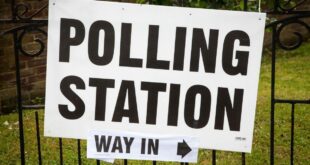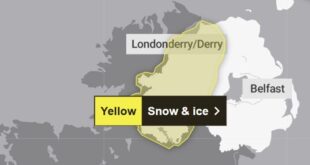The Dutch postal service company backed by the Czech tycoon buying the Royal Mail has called for government support after warning on profits.
Shares in PostNL fell by as much as 8.4 per cent in Amsterdam after it issued another weak trading update for 2024 as it struggles with falling mail volumes and increased ecommerce and parcel costs.
The investment arm of EP Group, the conglomerate controlled by Daniel Kretinsky, owns about 29 per cent of PostNL and has been a shareholder since 2021.
Kretinsky’s empire, built on European gas interests, has stakes in food, media, logistics and retail including J Sainsbury and Footlocker, and is poised to pull off the audacious acquisition of International Distribution Services (IDS), the owner of Royal Mail, by the end of March.
The £3.6 billion, 370p-per-share acquisition of IDS, which was recommended to shareholders by IDS’s board last May, has raised speculation over whether Kretinsky may explore options for PostNL and GLS, IDS’s European parcels business.
In November PostNL, which delivers parcels and letters across Belgium, the Netherlands and Luxembourg, cut its full-year targets and announced that Herna Verhagen, its chief executive, would step down after its annual meeting in April. Verhagen will be replaced by the chief financial officer, Pim Berendsen.
In a further downbeat trading update, before full-year results next month, PostNL said its operating profit was expected to be about €53 million, below a previous forecast of about €80 million in November, which was at the bottom of its earlier given outlook range.
Daniel Kretinsky may consider merging PostNL with GLS, the European parcels business owned by Royal Mail’s parent
DAVID W CERNY/REUTERS
Postal delivery companies are contending with increased competition from parcel delivery firms, including out-of-the-home locker operators, at a time of a long-term decline in letters and high fixed costs.
Verhagen said on Monday that 2024 “turned out to be an unsatisfactory year from a financial perspective” and said that in response to the weaker profits and “changing market dynamics” it would adjust its strategy.
Less seasonal mail in the Netherlands in December and higher labour costs due to staff shortages and rising rates of sick leave put pressure on the business, meaning that December “was barely sufficient to cover the loss for the rest of the year” in that business.
Verhagen stepped up calls to politicians for reform of the company’s universal service obligation (USO) to allow it to have longer delivery times.
“This financial performance again underlines that the current business model is no longer sustainable,” he said. “Urgent action to adjust the USO obligations as well as a financial contribution from government are inevitable to safeguard a future-proof and financially viable postal service which is vital for Dutch society. ,We are continuing to make every effort to address this situation and we have taken additional measures.”
Alexander Paterson, an analyst at Peel Hunt, said he did not believe that there was “a lot of commercial logic” in merging PostNL and GLS.
“GLS is a fast-growing parcel, logistics and express operator, often cross-border. It needs capital to grow and expand geographically. PostNL is primarily domestic, regulated and has little revenue growth as letter revenues are declining about as fast as parcel revenues are growing.”
He added that it was “hard to see many synergies or benefits: more likely dis-synergies”.
Shares in PostNL were down 5 cents, or 5 per cent, at €0.99 in Amsterdam in afternoon trading.
Source link



